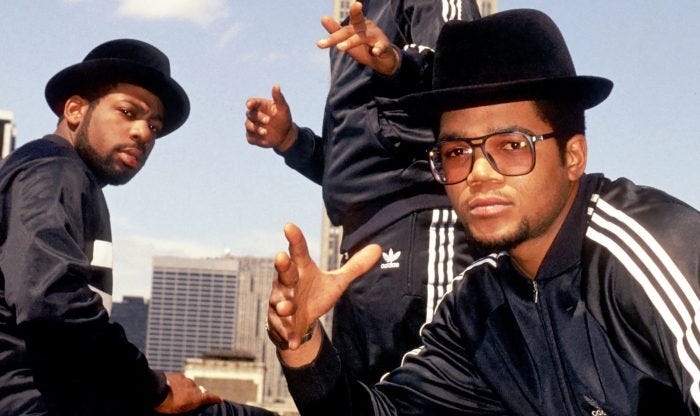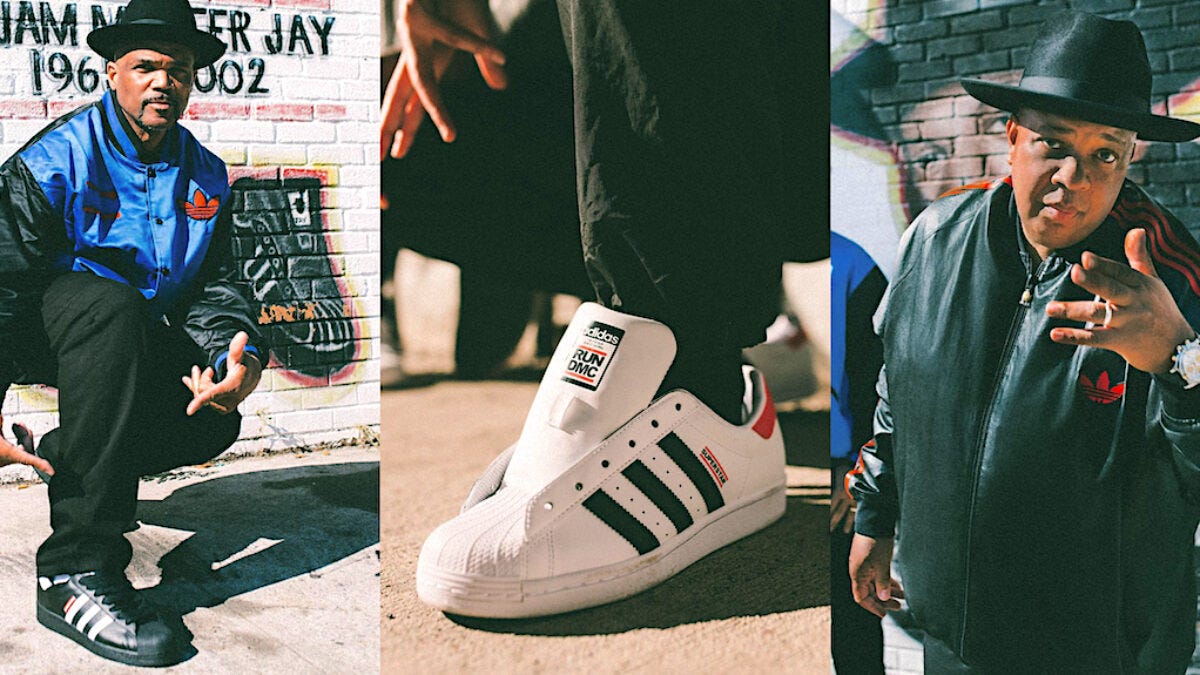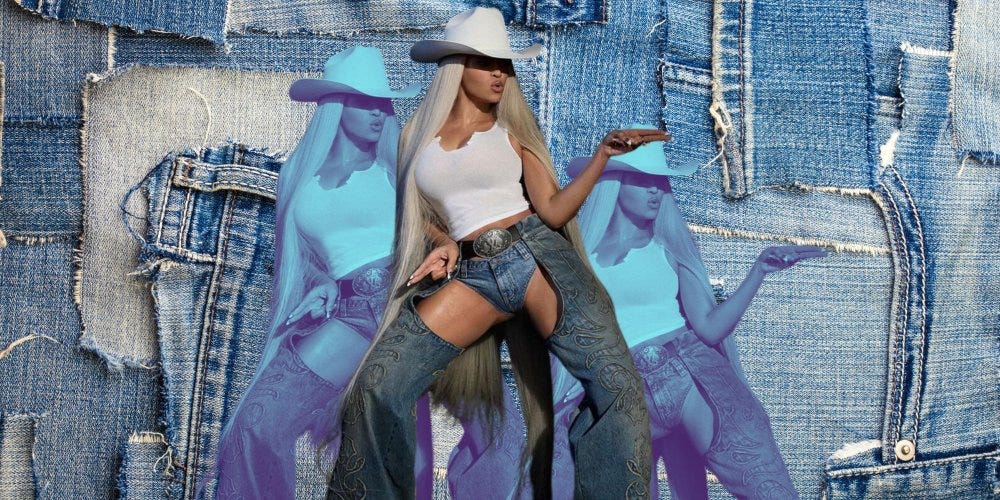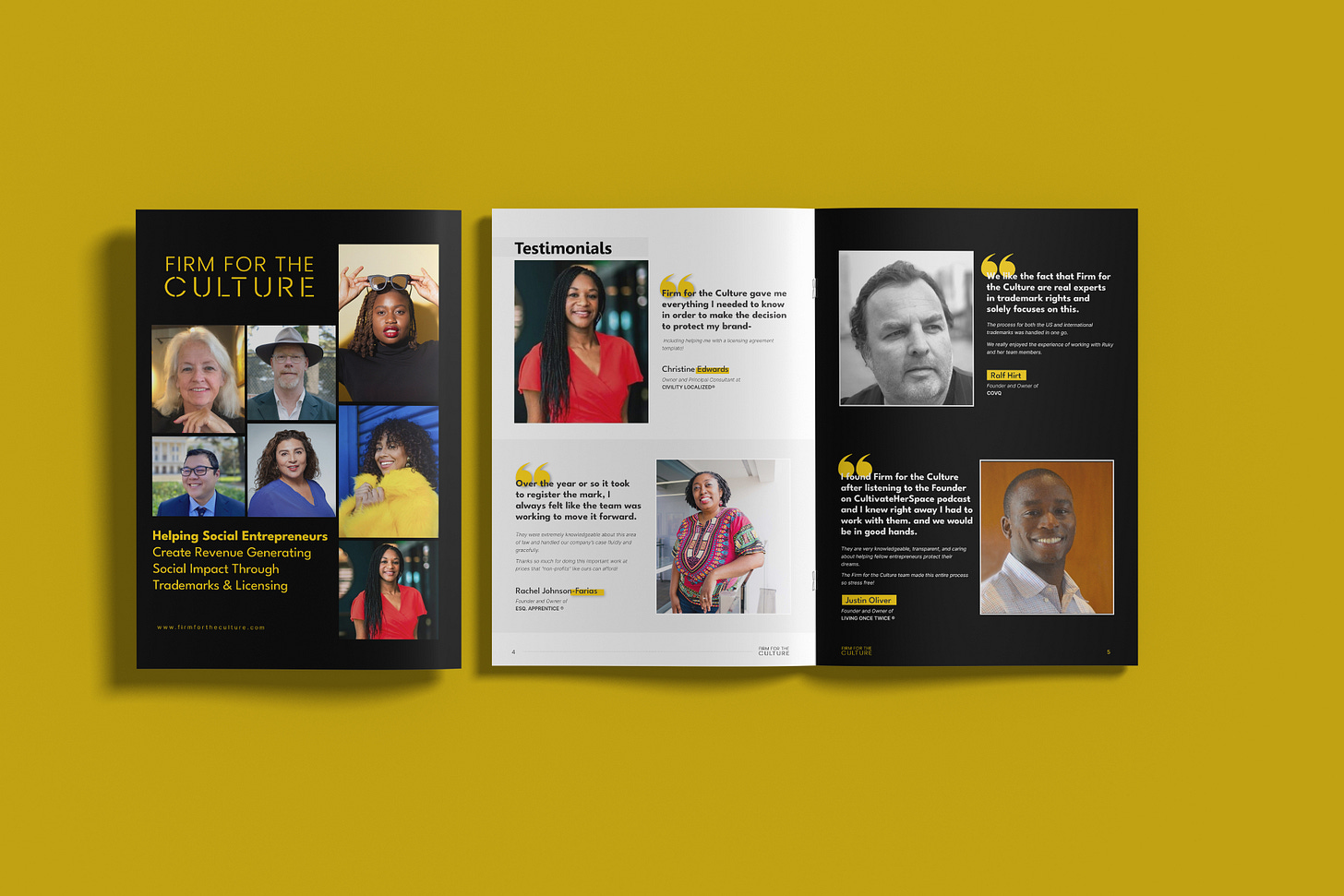Beyonce, Stop Taking My Money....
Looks like I'm going to shell out some coins again... | I Am What an Intellectual Property Attorney Looks Like.
Hey Fam,
Beyoncé has an exciting new collaboration with Levi’s called “Reimagine.”
In other words, Beyoncé has yet another opportunity to take my coins before the year ends.
But this latest partnership got me thinking—what do collaborations like this have in common with other iconic brand partnerships, like Run DMC and Adidas, Michael Jordan and Nike, or Popeyes and Megan Thee Stallion?
Each of these partnerships began with celebrities leveraging trademarks they didn’t even own.
By strategically using “OPT” — other people’s trademarks — they turned these collaborations into multi-million-dollar opportunities.
Yup, you read that right.
These lucrative and legendary partnerships weren’t just about products—they were about celebrities using trademarks to challenge sterotypes as well as redefine and cement their own place in culture.
And if you’re wondering how to apply these lessons to your own business, keep reading and taking notes.
For this founder’s letter, we’re going to discuss how Beyoncé and Run DMC leveraged trademarks they didn’t own to elevate these brands beyond just shoes and jeans.
Loving This Post?
Show us some love by adding a “❤️” or commenting below; this will make our hearts sing.
But First, Church Announcements
NEW UPCOMING EVENT: I’m excited to invite you to our live session.
Upcoming Event - Protecting Your Brand: Trademarks for Coaches, Consultants, and Thought Leaders
Join us on Thursday, October 10, 2024, for an exclusive session on Protecting Your Brand: Trademarks for Coaches, Consultants, and Thought Leaders
If you’re looking to take your business to the next level and protect your brand assets, Firm for the Culture is here to help!
We specialize in supporting mission-driven entrepreneurs by ensuring their intellectual property is secured and their legal foundations are strong.
Our upcoming Trademark Masterclass is the perfect place to learn more about trademark registration and brand protection.
Make sure to register and save your spot!
The event is set for Thursday, October 10, 2024 | 8:30 AM PST | 11:30 AM EST | 10:30 AM CST
👉 Reserve your spot now: RSVP Here
1. Cultural Authenticity that Drives Impact
Run-DMC and Beyoncé both knew one thing: authenticity sells.
But not the watered-down, “trendy” version.
We’re talking about real cultural connection.
With Run-DMC, the “My Adidas” song took the German shoe company from a corporate conglomerate (with questionable origins) to a symbol of New York swag and street smarts.
Because of this, when thousands of fans raised their Adidas in the air during concerts, they were showcasing cultural pride.
And recently, Beyoncé did something similar with Levi’s®.
Denim’s history would no longer be a product of cowboys, rugged men, and hard labor.
It would be a symbol of empowerment, femininity, and courage.
All attributes that make Beyoncé who she is.
With this new collaboration in place, Levi’s has the great potential to become a symbol of female power—something every woman could wear proudly, just like how Run-DMC rocked their Adidas.
The lesson here?
Authenticity, rooted in real narratives, turns trademarks into something more.
They turn these words, phrases, and logos into movements for the culture.
Lessons to apply to your business: In your business, don’t just focus on what you’re selling—focus on what your brand stands for.
Authenticity that resonates deeply with your audience will transform your product from a mere commodity into a movement that people want to rally behind.
Just like Run DMC didn’t just rap about shoes, and Beyoncé didn’t just model denim, your brand should be a reflection of the values, stories, and communities you represent.
2. Using Trademarks to Break Stereotypes
Run-DMC and Beyoncé didn’t just promote brands—they challenged stereotypes.
Think back to when Run-DMC released “My Adidas.”
They were challenging the media narrative that painted Black men in New York as gangsters because they wore Adidas without laces.
The track’s lyrics were a bold statement, celebrating the pride and power behind that fashion choice.
Fast-forward, and you see Beyoncé doing the same thing for women in denim.
Whereas Levi’s® had long been a symbol of rugged masculinity, Beyoncé’s “Reiimagine” campaign flipped that on its head.
She made denim a form of self-expression for women everywhere, breaking the stereotype that jeans were only meant to represent masculinity.
In the end, these artists used their voices to redefine what these brands stood for—and showed the world that trademarks are about powerful storytelling.
Lessons to apply to your business: Think about how your business can challenge stereotypes and reshape narratives through your brand.
Whether it’s reimagining who your product serves or redefining what your industry stands for, use your platform to address deeper societal issues.
Just like Run DMC turned a sneaker into a symbol of pride and Beyoncé redefined denim as a statement of women’s power, your brand has the potential to break barriers and offer a fresh perspective.
3. Transforming Brands into Cultural Symbols
Run DMC walked so Beyoncé could run.
It may be hard to imagine today, but Hip Hop and Black artistry didn’t always have a seat at the corporate table.
So when the President of Adidas’ American division attended a Run DMC concert in 1988, he wasn’t just watching a performance—he was witnessing a movement.
He saw thousands of fans holding up their Adidas sneakers, singing along to the lyrics of “My Adidas,” and redefining what the brand could mean. That moment led to a landmark collaboration, connecting Adidas with communities that had never been on their radar.
This partnership set the stage for future collaborations between artists and global brands, making room for Black creatives to have a voice at the corporate table.
It also paved the way for today’s legendary partnerships, from 50 Cent and Vitamin Water, to Megan Thee Stallion and Popeyes, to Michael Jordan and Nike, and Rihanna’s game-changing Fenty x LVMH deal.
So it’s no wonder that Beyoncé was able to draw on numerous successful case studies to secure a brand partnership with Levi’s.
Same idea, different execution. Beyoncé didn’t just sell jeans—she redefined what Levi’s® could be.
Lessons to apply to your business: Be strategic with your collaborations and partnerships—align with those that share your vision and amplify your mission.
It’s not just about landing a high-profile partner; it’s about forming alliances that help build your long-term legacy.
Take a cue from Run DMC and Beyoncé: they didn’t just settle for any brand—they chose partners that allowed them to extend their impact beyond music and into cultural history.
So what’s the takeaway here?
It’s that when you use trademarks right, you’re not just building a brand—you’re building history.
Run-DMC made Adidas the crown jewel of hip-hop fashion. Beyoncé turned Levi’s® into an anthem for women’s power and resilience.
Both artists took something as simple as a trademark and turned it into a cultural statement.
So whether it’s shoes, jeans, or your own brand, remember this: a trademark isn’t just about protecting your product.
It’s about creating a legacy.
How do you think modern brands can use trademarks to connect more deeply with their audiences?
Share your thoughts and let’s discuss how authenticity and culture shape the future of branding!
If you need further guidance, reach out to me and my team at Firm for the Culture.
We’re here to help you navigate the copyright, trademark, and thought leadership journey.
Don't forget to follow us on all platforms for more insights on intellectual property and thought leadership.
And #ThatsAWrap
The Doors of the Church Firm Are Open
Thanks for reading.
See you next time.
#ForTheCulture











